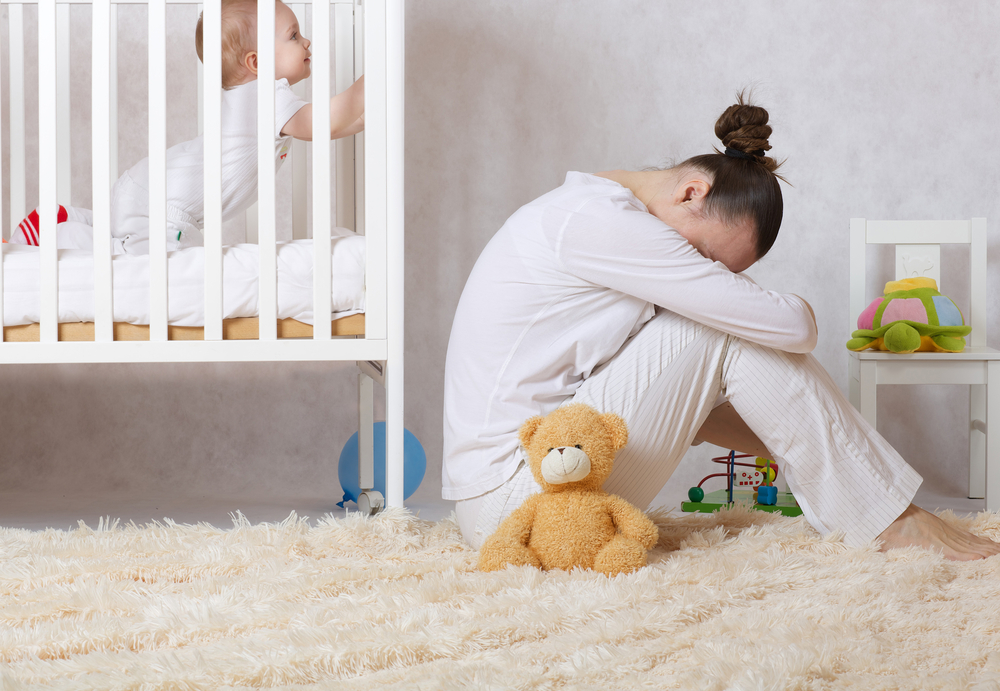Thursday, October 10th is National Mental Health Day. In honor of the day, we’d like to talk about an issue that we feel should be talked about more, postpartum depression.
Having a baby is a wonderful event, but it can sometimes come along with emotions that you don’t expect. It is common to experience postpartum “baby blues” including mood swings, having a hard time sleeping, and crying spells starting a day or two after birth and lasting for up to two weeks. You’ve just gone through a life-changing event, your body has undergone a huge physical feat, and you’re probably sleeping a lot less than you used to.
But for some new moms, their experience postpartum includes a longer-lasting and more severe form of depression known as postpartum depression. Postpartum depression can happen to anyone and isn’t a result of any weakness on behalf of the mother. It should be viewed as a complication after giving birth, just like any other issue would be. It’s important to watch for the signs of postpartum depression so that it can be treated promptly to help the mother bond with her baby. One in seven moms and one in ten dads suffer from postpartum depression. It is a very real issue for both men and women. Many times people don’t realize that postpartum depression can also occur in new fathers. Their symptoms are often similar to their female counterparts.
It can sometimes be hard to distinguish between the normal feelings that come with having a sleepless newborn and postpartum depression. According to Postpartum.net some questions to ask yourself to check in with your mental state are:
- Are you feeling sad or depressed?
- Do you feel more irritable or angry with those around you?
- Are you having difficulty bonding with your baby?
- Do you feel anxious or panicky?
- Are you having problems eating or sleeping?
- Are you having upsetting thoughts that you can’t get out of your head?
- Do you feel as if you are “out of control” or “going crazy”
- Do you feel like you never should have become a mother?
- Are you worried that you might hurt your baby or yourself?
Any of these symptoms can signal that you might have a form of perinatal mood disorder, of which postpartum depression is one. Symptoms can appear at any time during the first 12 months after childbirth. If you have any of these feelings it is important to discuss them with your medical provider so that they can connect you to the care you need. Treatment and recovery time can vary from person to person and can depend on underlying conditions. Postpartum depression is commonly treated with psychotherapy, medication, and sometimes with both. It is important to understand that postpartum depression is treatable and you don’t have to suffer. It can be hard to admit that you are having a hard time post-baby, especially when everyone around you is telling you what a special time it is, but it is important to remember that just because it isn’t talked about postpartum is a real issue for between 10-15% of new parents and chances are you know someone who has suffered from it, whether you know they have or you don’t.
Sources:
Mayo Clinic – https://www.mayoclinic.org/diseases-conditions/postpartum-depression/symptoms-causes/syc-20376617
Postpartum.net – https://www.postpartum.net



